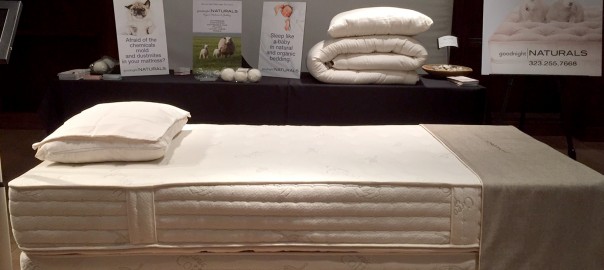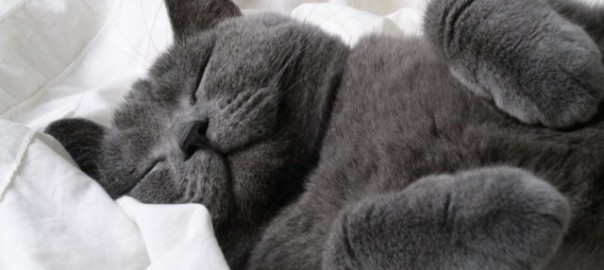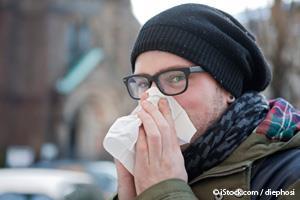Use the National Sleep Foundation Sleepiness Test (Source) to see if you are more or less sleepy than the general population. Similar tests are often used by doctors to test sleepiness levels. If you rate “very sleepy” on this test, you should speak to your physician.
All posts by admin
Sleep Featured in Official Congressional Report
For the first time in an official congressional report, sleep will be featured prominently as a key domain of health in the United States.
Sleep Featured in Official Congressional Report
For the first time in an official congressional report, sleep will be featured prominently as a key domain of health in the United States.
Source: Sleep research Society

American Society of Interior Designers (ASID) EXPO 2015 at the L.A. Mart #interiorDesigners
Good Night Naturals is now an “Industry Partner” of the American Society of Interior Designers. (ASID)
Good Night Naturals will be displaying a mattress and introducing our products and store to the ASID for the first time tomorrow we head to the LA Mart for the ASID meet and greet!
Join us September 28, 2015, at 11am-4pm
Location
LA Mart


The Rain Didn’t Stop Celebs from Enjoying the WOW! Creations Celebrity Lifestyle Gifting Suite Honoring the Emmys #WowHollywood #GiftSuite #SWAG #KingsofSwag
Read more at: Red Carpet Report

Dawn’s Corner
For more information about these products please see the links to the right of this video.

In my second segment on Arizona Midday, I showed off wonderful EMMY worthy products, including: Grace in L.A., Radar…
Posted by Dawn McCarthy on Thursday, September 24, 2015 for more info- Visit Dawn’s Corner

6 Tips for Getting More Sleep
By (Source) gerson.org Mikhaela Payden-Travers
Editor’s note: This article originally appeared in the Winter 2015 issue of the Gerson Institute’s quarterly newsletter, Healing News.
We focus a lot on nutrition and how the food we eat impacts our health and effects healing, but today we’re going to focus on another key component to health and healing: sleep.
While sleeping well is essential for everyone’s well-being, it is especially important for Gerson Therapy patients, who may need more than the standard 7-9 hours. Rest is a vital part of the therapy. Without adequate rest, the body does not have the energy it needs to heal. It’s good to remember that food is medicine – but I think we’ve all felt the healing power of a good night’s sleep, too!
During my first two years of graduate school, I probably only slept about six hours a night on average, but there were many especially painful days when I tried to function on just three or four hours.
I’m not alone. A 2013 Gallup poll found that Americans sleep an average of 6.8 hours a night, similar to numbers from the 1990s, but far less sleep than Americans got in 1974 when the Gallup poll found the average American sleeping 7.9 hours per night. Unfortunately, a lack of sleep – and especially chronic sleep deprivation – has serious health consequences.
First, sleep is incredibly important for optimal mental processing. While we sleep, our neurons get a chance to rest, and the brain actually constructs new neural pathways, which is why sleep is so important for learning new information. If you’ve felt groggy from too little sleep, you’ve experienced the obvious impact of serious sleep deprivation on your mental alertness. New studies, however, suggest that mild chronic sleep deprivation can also have a serious impact on certain mental functions, especially in the areas of creativity and innovation.
There is also growing evidence of a connection between adequate sleep and mental health. Although the exact nature of the relationship is still being explored, psychiatrists at Harvard suggest “a good night’s sleep helps foster both mental and emotional resilience, while chronic sleep disruptions set the stage for negative thinking and emotional vulnerability.” A lack of sleep is also associated with greater risk for depression and other serious psychiatric conditions.
Getting enough sleep is also important for our physical health. While we sleep, our bodies produce cytokines and other antibodies that are pivotal to our immune system’s ability to fight off dangerous bacteria and viruses. In addition to directly affecting our ability to protect ourselves against infectious disease, chronic sleep deprivation is associated with increased risk of numerous chronic diseases including heart disease, irregular heartbeat, high blood pressure, diabetes, as well as heart attack and stroke.
Finally, sleep actually ends up relating to our health through nutrition, as how much we sleep may have an important impact on what we decide to eat. Studies have found that sleep deprivation increases the levels of the stress hormone cortisol, while at the same time decreasing the hormone leptin (which lets your brain know you’ve had enough to eat) and increasing ghrelin (an appetite stimulant). Thus, getting more sleep may be an important factor in helping you make healthier eating choices.
As I consciously began focusing on getting at least eight hours of sleep a night, I noticed significant changes in my mood and my ability to regulate my emotions. Everything really does seem better after a good night’s sleep.
If you already get your 7-9 hours a night without fail, congratulations! Keep up the good work. If you don’t, here are some helpful hints that I used to work on setting and maintaining a healthier sleep regime.
6 Tips for Getting More Sleep
1. Make sleep a priority
Simply deciding that getting at least 8 hours of sleep a night is going to be one of your health priorities can go a long way. Resist putting work or household chores – or even a good book – ahead of sleep.
2. Develop a sleep routine
Try to go to bed and wake up at the same time each day, even on the weekends. Studies suggest that going to sleep at 10 pm and waking up at 6 am works the best with our body’s natural rhythms.
Developing a ritual that you follow each night before going to sleep (e.g. journaling, reading, paced breathing, and drinking chamomile tea) can also help prepare your body for rest.
3. Make the bed a “sleep only” space
Sometimes it is easy to convert your bed into an all-purpose area – especially if you live in a small apartment. Eating in bed, watching TV in bed, or even working in bed can make it more difficult for you to sleep at night.
4. Avoid eating and exercise within three hours of going to sleep
This can be hard for night owls, but it is important to remember that eating and exercise both get your body energized, not ready for a good night’s sleep. Although regular exercise can make it easier for you to sleep eventually, you should make sure to leave your body plenty of time to wind down afterwards.
5. Turn off the lights (and devices)
Make sure that the area where you sleep is dark and quiet (although if you live in a noisy neighborhood, a white noise machine can be helpful). The hormone melatonin is produced in total darkness, and the longer you stay in the dark, the more melatonin the pineal gland produces. Melatonin regulates our sleep and wake cycles, destroys free radicals, suppresses the development of breast cancer, increases the immune system’s killer lymphocytes and more. Some people use black-out shades or eye masks to block out light when they sleep and/or turn off or move anything out of the room that emits even dim light in their bedroom (e.g. LED lights in TVs, clocks or night lights). If you need a night light, a dim red light is the best choice. [LINK TO SOURCE 6]
Additionally, the blue wavelength light emitted from TVs, computer screens and cell phones suppresses melatonin production more than other wavelengths, so it is wise to avoid exposure to them 2-3 hours before bedtime. That means no more falling asleep in front of the TV! However, exposing your eyes to lots of bright natural light during the day can help you sleep better at night.
6. Listen to your body – and get rid of the alarm clock!
After starting to get into a sleep routine, see if your body can awaken on time naturally, without the help of an alarm clock. (Maybe try this out on the weekend first, though!) Listening to your body is the best measure of whether you’re getting sufficient rest.
SRS Award Nominations Due Nov. 1
The SRS recognizes excellence in sleep research by providing funding and recognition.
SRS Award Nominations Due Nov. 1
The SRS recognizes excellence in sleep research by providing funding and recognition.
Source: Sleep research Society

Lack of Sleep Can Quadruple Your Risk of Catching a Cold
By (Original Source) Dr. Mercola
Sleep deprivation is extremely common and can weaken your immune system, accelerate tumor growth, accelerate diabetes, and impair all aspects of your cognition. And that’s just the short list of side effects.
Now that we’re moving closer toward cold and flu season, you would be wise to address your sleeping habits to ward off those banes of wintertime. Research shows sleeping less than six hours per night quadruples your risk of catching a cold.
According to National Sleep Foundation survey data on how much sleep Americans get, as many as one in five people get less than six hours of sleep per night.
A 2013 Gallup poll1 suggests this number may be closer to 40 percent. If you care about your health, don’t be in this category of short sleepers…
Lack of Sleep Increases Your Risk of Catching Cold, and More
According to recent research,2,3,4,5 adults who sleep less than six hours a night have a four times higher risk of catching a cold when directly exposed to the virus than those who get at least seven hours.
Sleeping less than five hours per night resulted in a 4.5 times higher risk. Interestingly, they found that sleep was more important than any other factor when it came to protecting against the cold virus, including stress levels, age, and smoking.
According to the lead author:
“With all those things taken into account, statistically sleep still carried the day and was an overwhelmingly strong predictor for susceptibility to the cold virus.”
As noted by Dr. Nathaniel F. Watson, president of the American Academy of Sleep Medicine:6
“This study reinforces the notion that sleep is just as important to your health as diet and exercise. People need to view sleep as a tool to achieve a healthy life, rather than as something that interferes with all their other activities.”
Lack of Sleep Impairs Your Body’s Insulin Sensitivity
Impaired insulin sensitivity, also known as insulin resistance, occurs when your body cannot use insulin properly, allowing your blood sugar levels to get too high. Insulin resistance is a precursor to type 2 diabetes as well as a risk factor in many other chronic diseases.
In fact, controlling insulin levels is one of the most powerful ways to reduce your risk of chronic diseases, including high blood pressure, heart disease, and cancer. The increase in insulin-related diseases we’re now seeing is likely related to a lack of sleep too.
So if you are having trouble losing weight or struggling with diabetes, it’s imperative that you optimize your sleep, as failure to do so could make it very unlikely you will ever be able to get these problems under control.
Lack of Sleep Decimates Your Immune Function
The fact that lack of sleep dramatically raises your chances of catching a cold makes sense when you consider the influence sleep has on your general immune function.
Previous research published in the journal Sleep demonstrates that sleep deprivation has the same effect on your immune system as physical stress.7 White blood cell counts increase when you’re sleep deprived, and this is the same type of response you typically see when you’re sick or stressed.
In a nutshell, whether you’re physically stressed, sick, or sleep deprived, your immune system becomes hyperactive and starts producing white blood cells — your body’s first line of defense against foreign invaders like infectious agents.
Elevated levels of white blood cells are typically a sign of disease. The American Academy of Sleep Medicine and the Sleep Research Society, which recently published updated sleep guidelines based on the available research, warn that sleeping less than seven hours per night is also associated with:
- Weight gain Diabetes Hypertension
- Heart disease Stroke Depression
- Premature death Weakened immune function Pain
- Impaired performance and cognition Increased errors Heightened accident risk
The results from more than 300 studies suggest that, to protect your health, you need right around eight hours of sleep per night; and at least a minimum of seven. This applies to adults and seniors alike.
School-aged children need anywhere from nine to 11 hours, and teenagers need eight to 10 hours of sleep per night.
Your Immune System Needs Melatonin for Optimal Function
For the past century or so, the developed world has been performing an open-ended experiment on itself by lengthening its days and shortening its nights in an effort to become a 24-hour per day, ever-productive society.
But light pollution generated by modern technologies is taking a heavy biological toll. Your body contains a number of biological clocks, which are governed by Earth’s cycles of light and darkness.
In short, you were built to be active and restful in accordance to the rising and setting of the sun, and ignoring this biological imperative has consequences that you cannot “will” away.
Your main master clock resides in the suprachiasmatic nucleus of your brain (SCN), which is part of your hypothalamus. Based on signals of light and darkness, your SCN tells your pineal gland when it’s time to secrete melatonin — a powerful antioxidant and free radical scavenger that helps combat inflammation.
Artificial lighting disrupts your biological clock and melatonin production, which in turn impairs your immune function. In fact, melatonin is so integral to your immune system that a lack of it causes your thymus gland, a key component of your immune system, to atrophy.
Melatonin also helps protect your brain health, and is a very potent anti-cancer agent. Cells throughout your body — even cancer cells — have melatonin receptors. So when melatonin makes its nightly rounds (its production peaks during the night), cell division slows.
When this hormone latches onto a breast cancer cell, it has been found to counteract estrogen’s tendency to stimulate cell growth. It also triggers cancer cell apoptosis (self destruction), and interferes with the new blood supply tumors require for their rapid growth (angiogenesis).
It’s also been well-established that night shift workers have an increased risk of weight gain, diabetes, and cancer. So the health consequences of disrupted sleep can certainly be far more dire than elevating your risk for the common cold…
How to Optimize Your Sleep
Below are half a dozen of my top guidelines for promoting good sleep. For a comprehensive sleep guide, please see my article 33 Secrets to a Good Night’s Sleep.
- Get BRIGHT sun exposure during the day, every day Your pineal gland produces melatonin roughly in approximation to the contrast of bright sun exposure in the day and complete darkness at night.
If you are in darkness all day long, it can’t appreciate the difference and will not optimize your melatonin production. To help your circadian system to reset itself, make sure to get at least 10 to 15 minutes of morning sunlight. This will send a strong message to your internal clock that day has arrived, making it less likely to be confused by weaker light signals later on.
Also aim for 30 to 60 minutes of outdoor light exposure in the middle of the day, in order to “anchor” your master clock rhythm. The ideal time to go outdoors is right around solar noon but any time during daylight hours is useful. - Avoid watching TV or using your computer at night Light emitting technologies can have a significantly detrimental impact on your sleep, so avoid them for at least an hour or so before going to bed. TV and computer screens emit blue light; nearly identical to the light you’re exposed to outdoors during the day. This tricks your brain into thinking it’s still daytime, thereby shutting down melatonin secretion.
Under normal circumstances, your brain starts secreting melatonin between 9 or 10 pm, which makes you sleepy. When this natural secretion cycle is disrupted, due to excessive light exposure after sunset, insomnia can ensue. - Sleep in complete darkness, or as close to it as possible Even the slightest bit of light in the room can disrupt your internal clock and your pineal gland’s production of melatonin. So close your bedroom door, and get rid of night-lights. Refrain from turning on any light at all during the night, even when getting up to go to the bathroom. Cover up your clock radio. Make sure to cover your windows — I recommend using blackout shades or drapes. An eye mask is an inexpensive alternative.If you need a nighttime navigation light, install a low-wattage yellow, orange, or red light bulb. Light in these bandwidths does not shut down melatonin production in the way white and blue bandwidth light does. Salt lamps are handy for this purpose. You can also download a free application called f.lux that automatically dims your monitor or screens at night.
- Keep the temperature in your bedroom below 70 degrees F Many people keep their homes too warm. Studies show the optimal room temperature for sleep is between 60 to 68 degrees. Keeping your room cooler or hotter can lead to restless sleep. This is because when you sleep, your body’s internal temperature drops to its lowest level, generally about four hours after you fall asleep. Scientists believe a cooler bedroom may therefore be most conducive to sleep, since it mimics your body’s natural temperature drop.
- Take a hot bath 90 to 120 minutes before bedtime This increases your core body temperature, and when you get out of the bath it abruptly drops, signaling your body that you are ready for sleep.
- Check your bedroom for electro-magnetic fields (EMFs) EMFs can disrupt your pineal gland and the production of melatonin and serotonin, and may have other negative effects as well. To do this, you need a gauss meter. You can find various models online, starting around $50 to $200. Some experts even recommend pulling your circuit breaker before bed to shut down all power in your house.
- Move alarm clocks and other electrical devices away from your bed If these devices must be used, keep them as far away from your bed as possible, preferably at least three feet. This serves at least two functions. First, it can be stressful to see the time when you can’t fall asleep, or wake up in the middle of the night. Secondly, the glow from a clock radio can be enough to suppress melatonin production and interfere with your sleep. Cell phones, cordless phones, and their charging stations should ideally be kept three rooms away from your bedroom to prevent harmful EMFs.
Helpful Tools to Improve Your Sleep
To make sure you’re getting enough sleep, you need to make sure you’re going to bed early enough. If you have to get up at 6:30am, you’re not going to get enough sleep if you go to bed after midnight. A fitness tracker that tracks both daytime movement and sleep can be a helpful tool, allowing you to get a better picture of how much sleep you’re actually getting. Chances are, you’re getting at least 30 minutes less shut-eye than you think, as people typically don’t fall asleep as soon as their head hits the pillow.
Another novel invention is an app called Sleep Genius8,9 available for Android, and iOS. It’s a free application based on NASA research to help astronauts sleep better. It uses sounds scientifically composed to trigger your brain into getting to sleep faster, promoting deeper and longer sleep than normal. You can set it for a specific time, or let it play all night. Its Revive Cycle Alarm gradually wakes you up without harsh alarms. If you’re using it on your smartphone, be sure the phone is as far away from your bed as possible to avoid EMF exposure.
Additional Guidelines for Natural Cold and Flu Prevention
It’s important to remember that your immune system is your primary line of defense against any virus, so keeping your immune function high should be at the top of your list if you want to avoid the flu. According to the featured study, sleep may be the number one lifestyle factor that can increase or decrease your risk, so be sure to get enough rest. Just like it becomes harder for you to get your daily tasks done if you’re tired, if your body is overly fatigued it will be harder for it to fight the cold or flu virus.
In addition to optimizing your sleep quality and making sure you’re getting about eight hours a night, the following guidelines can help keep your immune system in optimal working order so you’re far less likely to acquire the infection when people around you start coughing and sneezing.
Optimize your vitamin D level Optimizing your vitamin D levels is one of the absolute best strategies for avoiding infections of ALL kinds, and vitamin D deficiency may actually be the true culprit behind the seasonality of the flu – not the flu virus itself. This is probably the single most important and least expensive action you can take. Regularly monitor your vitamin D levels to confirm your levels are within the therapeutic range of 50 to 70 ng/ml.
Avoid processed foods and sweet beverages Sugar impairs the function of your immune system almost immediately. Be aware that sugar (typically in the form of high fructose corn syrup) is present in foods you may not suspect, like ketchup and fruit juice.
Optimize your gut flora About 80 percent of your immune system resides in your gut, so optimizing your gut microbiome is really important. The best way to do this is to avoid sugars, processed foods, and most grains, and replacing them with healthy fats and taking regular amounts of fermented foods. This can radically improve the function of your immune system.
Exercise regularly When you exercise, you increase your circulation and your blood flow throughout your body. The components of your immune system are also better circulated, which means your immune system has a better chance of finding an illness before it spreads. Be sure to incorporate high-intensity interval exercises like Peak Fitness into your routine.
Take a high quality animal-based omega-3 fat Increase your intake of healthy and essential fats like the omega-3 found in krill oil, which is crucial for maintaining health. It’s also important to avoid damaged omega-6 oils found in processed foods, as having a lopsided omega-3 to omega-6 ratio can seriously damage your immune response.
Remember basic hygiene measures, such as washing your hands Washing your hands will decrease your likelihood of spreading a virus to your nose, mouth or other people. Be sure you don’t use antibacterial soap for this – antibacterial soaps are completely unnecessary, and they cause far more harm than good by promoting antibacterial resistance. All you need is a gentle soap and warm water.
In addition to washing your hands regularly, cover your mouth and nose when you cough or sneeze. If possible, avoid close contact with those who are sick and, if you are sick, avoid close contact with those who are well.
Address your stress We all face some stress every day, but if stress becomes overwhelming, then your body will be less able to fight off illness. If you feel stress is taking a toll on your health, consider using an energy psychology tool such as the Emotional Freedom Techniques, which is remarkably effective in relieving stress associated with all kinds of events, from work to family to trauma.
Use natural immune boosters Examples include oil of oregano, olive leaf extract, garlic, and colloidal silver.
Apply For Gordon Research Conference
The 2016 Sleep Regulation and Function Gordon Research Conference entitled “Functions of Sleep in Body and Brain” will be held March 13-18, 2016, at the Hotel Galvez,Galveston, TX.
Apply For Gordon Research Conference
The 2016 Sleep Regulation and Function Gordon Research Conference entitled “Functions of Sleep in Body and Brain” will be held March 13-18, 2016, at the Hotel Galvez,Galveston, TX.
Source: Sleep research Society
NSRR Early Adopters Meeting – Oct. 9 2015
The National Sleep Research Resource is organizing a meeting with a group of Early Adopters to be held on October 9th, 2015 in Boston, MA, to bring together current users of the data on the repository as well as potential new users who may be interested in using NSRR data for their studies.
NSRR Early Adopters Meeting – Oct. 9 2015
The National Sleep Research Resource is organizing a meeting with a group of Early Adopters to be held on October 9th, 2015 in Boston, MA, to bring together current users of the data on the repository as well as potential new users who may be interested in using NSRR data for their studies.
Source: Sleep research Society











